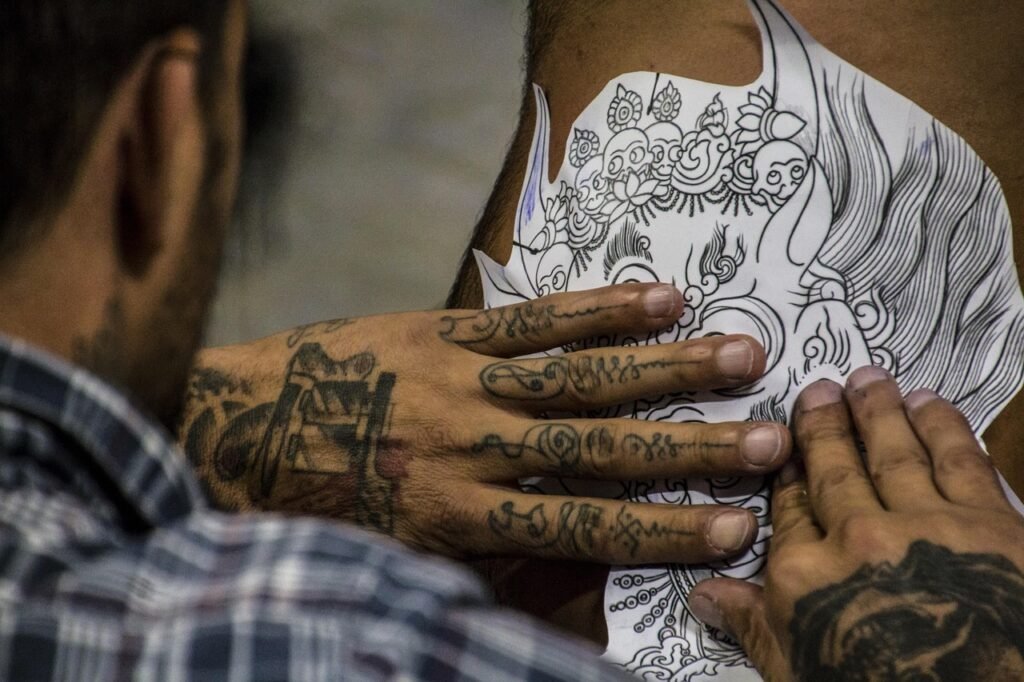The Importance of Researching Tattoo Studios
When considering getting a tattoo, one of the most critical steps is researching tattoo studios and artists thoroughly. Choosing the right tattoo studio can significantly influence the overall experience and outcome of the tattoo process. The cleanliness and hygiene of the establishment should be foremost in a potential client’s evaluation. A reputable tattoo studio must adhere to strict sanitation protocols to minimize the risk of infections. Therefore, prospective clients should observe the studio’s environment, examining the cleanliness of the workspace, tools, and equipment. Verified licenses and health permits from local health departments should also be prominently displayed, indicating that the studio complies with health regulations.

In addition to assessing hygiene standards, it is essential to evaluate the skills and experience of the tattoo artist. Studying the artist’s portfolio allows clients to assess their artistic capabilities and style. A diverse portfolio featuring various styles, colors, and designs can give clients insight into an artist’s expertise and versatility. It is beneficial to pay attention to previously completed tattoos and gauge their precision and artistry. This prepares clients to make an informed choice aligned with their personal preferences.
Another useful tool in the research process is customer reviews. Online platforms that host customer testimonials can provide valuable insights into others’ experiences with particular studios and artists. Reading reviews can help potential clients evaluate the overall satisfaction levels of previous customers regarding both the service and the final product. By accumulating this information, clients can confidently select a reputable and professional tattooist. This thorough research not only ensures satisfaction but also significantly reduces the risk of unsatisfactory results or complications associated with tattooing.
Health Risks Associated with Tattoos
Getting a tattoo is a significant decision that carries inherent health risks. One of the most common complications is an allergic reaction to tattoo ink, which can manifest as itching, redness, or rashes at the tattoo site. Some individuals may develop allergic reactions even years after receiving a tattoo, highlighting the need for cautious selection of pigments, particularly colored inks. Consulting with a qualified tattoo artist about the ingredients in the ink can help mitigate potential allergic responses.
Infections are another prevalent risk associated with tattooing. The process of inserting ink into the skin creates an open wound, making it crucial for tattoo practitioners to maintain stringent hygiene standards. Bacteria can enter the skin through unsterilized equipment or inadequate aftercare, leading to infections that may require medical treatment. Signs of infection include increased redness, swelling, pus formation, and persistent pain at the tattoo site. Prompt attention to these symptoms is essential to prevent more severe complications.
Furthermore, individuals with pre-existing skin conditions such as eczema or psoriasis may be at a higher risk for complications following a tattoo. These skin disorders can exacerbate healing issues, potentially resulting in scarring or other dermatological problems. Therefore, it is imperative for individuals with such conditions to consult healthcare professionals before proceeding with tattoo plans. Dermatologists can provide guidance on whether tattoos are advisable based on one’s unique skin health.
In summary, understanding the health risks associated with tattoos, including allergic reactions, infections, and complications related to skin conditions, is crucial. Seeking advice from healthcare providers not only facilitates informed decision-making but also promotes safer tattoo practices. By staying vigilant and recognizing the signs of potential complications during the healing process, individuals can safeguard their well-being while enjoying their body art.
Choosing the Right Tattoo Design and Placement
When considering a tattoo, the significance of the design and its placement cannot be overstated. A tattoo should ideally reflect personal values, interests, or meaningful memories. Selecting a design that resonates with your identity ensures that the tattoo remains relevant throughout the years. It is advisable to avoid trends that may fade in significance, focusing instead on symbols or images that have a deep-rooted meaning to the individual.
Besides personal significance, the longevity of the design is crucial. Some designs age better than others, particularly those that are more intricate or utilize bold colors. Simple designs may stand the test of time, while over-cluttered tattoos can become difficult to recognize as skin ages and changes. Additionally, consultation with a professional tattoo artist can offer insights into how a specific design might evolve over time, providing guidance for those concerned about future appearances.

Placement is another critical consideration, influencing both visibility and pain level. Areas such as the forearm or shoulder are often chosen for their visibility, while other locations, like the ribcage or ankle, may be less visible but can be more painful during the tattooing process. Individuals should weigh the implications of visibility, especially in professional settings. Certain workplaces maintain strict policies regarding visible tattoos, which may impact career prospects. Therefore, choosing an appropriate location in consideration of future professional implications is vital.
In summary, thoughtful decision-making regarding tattoo design and placement can significantly reduce the likelihood of future regret. Prioritize personal significance, design longevity, visibility, and pain levels while making your selection. A well-considered tattoo can become a cherished form of personal expression, rather than a source of regret later in life.
Aftercare Tips to Ensure Proper Healing
After getting a tattoo, it is crucial to adhere to proper aftercare practices to facilitate optimal healing and minimize complications. The first step in effective tattoo aftercare is to keep the tattooed area clean. Gently wash the tattoo with mild, unscented soap and lukewarm water. It is essential to avoid scrubbing the area, as this can damage the skin and inhibit the healing process. Pat the tattooed skin dry with a clean, soft towel to avoid irritation.
After cleansing, applying a thin layer of a recommended moisturizer or an ointment specifically designed for tattoo care is advisable. Common options include fragrance-free lotion or petroleum jelly. The application of moisturizer helps in keeping the tattoo hydrated, which is vital to prevent excessive scabbing and ensure a smooth surface as it heals. It is important to limit the amount used; a thin layer is sufficient for moisturization without clogging pores.
During the healing period, which typically lasts between two to four weeks, certain activities should be avoided to prevent complications. For instance, refrain from swimming in pools, hot tubs, or any body of water, as these can introduce bacteria to the healing skin. Additionally, it is advisable to avoid direct sun exposure on the tattooed area; UV rays can fade the ink and impair healing. Regular application of sunscreen, once healing is complete, can help maintain the vibrancy of the tattoo.
Moreover, avoid picking or scratching the tattoo, as this can lead to scarring or infections. Monitoring the tattoo for any signs of infection, such as excessive redness, swelling, or discharge, is essential. In case of concerning symptoms, seek medical attention promptly. By following these aftercare instructions diligently, individuals can ensure proper healing of their tattoos, maintaining their aesthetic quality and overall skin health.
